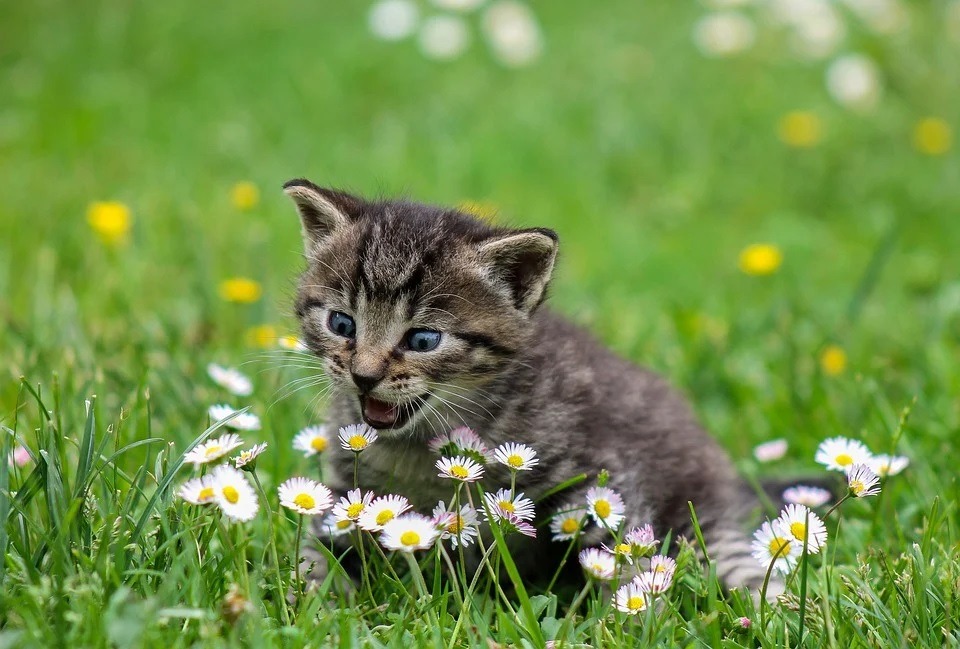You have probably questioned when to take your cat to the vet as a pet owner. To find an answer to this question, we frequently turn to the Internet, Googling symptoms and seeking to identify the problem. Calling the vet to confirm that your cat is healthy — and to give yourself some peace of mind — is always a good idea as a general rule.
Even so, knowing what signs to go out for is a great idea. Because an adventure cat that is sick or injured should not be out exploring, whether at home or on the path.
Here are eight signs that it is time to see a vet.
Signs To Visit A Veterinarian
Change In Appetite
When cats are sick, they usually refuse to eat; nevertheless, some ailments might boost a cat’s appetite. When a cat is not feeling well, its thirst can be impaired. Drinking a lot of water all of a sudden could indicate diabetes or kidney illness.
A lack of appetite or dislike of meals could suggest a mouth injury or disease. Stay updated on your cat’s eating habits and call your veterinarian when it has been more than a day or two since the cat last ate its food.
Change In Behavior
Cats in the wild tend to hide their pain, which serves as a survival strategy. However, it can be difficult for well-intentioned human caretakers to determine what’s wrong. When a cat is not feeling well, the cat will usually hide or avoid contact. Cats may get drowsy, ignore grooming, or not act like themselves. A cat that shows these symptoms needs to get checked instantly!
Discolored Gums
Gum color can disclose a lot about a cat’s health. The gums of a healthy cat will be pink, and if you push them with your finger, they will return to the same pink hue seconds after you lift your finger. Gums of various colors can suggest a range of issues. Blue gums, for example, could indicate a life-threatening lack of oxygen, whereas yellow gums could indicate liver disease.
Vomiting
Cats are known to vomit on occasion. If your cat keeps throwing up, there might be a possibility of a poor appetite.However, if there is blood in the vomit or after vomiting, the cat looks lethargic, see a veterinarian right away.
Your Cat Keeps Coughing.
Coughing for more than a day could indicate a more lethal condition, such as asthma, allergies, lung illness, or heart problems. Animal throats, like ours, can get dry or inflamed, and they may cough once or twice a day. However, if your pet has a chronic cough that lasts more than a day or two, you should seek medical attention. If the cat has trouble breathing or has blue gums, take him to the doctor right away. Coughing in animals is uncommon, even if it has been going on for years or since the animal was a newborn, so keep that in mind.
Your Cats Is Always Tired
It is difficult to detect if your pet is exhausted or more sedentary than usual, especially if they are couch potatoes. If your pet is used to running numerous laps per day but can suddenly barely make it around the block, avoids stairs, or can not jump as high as they used to, they may not be feeling well. Lethargy and exhaustion can indicate conditions, including infections, discomfort, and a variety of diseases.
When other symptoms such as a change in appetite, pale gums, vomiting, diarrhea, and weight loss are present, Trimble advises that you bring your pet in for a checkup.
Change in litter Box Habits
Is your cat littering the box frequently? Either you see indications of its pain in the litter box, such as straining or crying, then grab it and visit the vet as soon as possible!
The reason might be that it has a urinary tract infection or perhaps a blockage, which is a fatal illness. Kidney stones or feline interstitial cystitis could be the cause of urinating or defecating outside the litter box. Alternatively, your cat could have arthritis and find climbing into the box difficult. Check your cat’s litter box frequently to ensure that it is urinating and defecating regularly. Blood is found in the pee and stool of cats that do not use their litter box.
The list also includes other symptoms of sickness and diarrhea. If you see all of these signs, you should see a veterinarian.
Your Cat Eyes Look Unusual
Any apparent changes in your pet’s eyes need to get noticed instantly by you. The condition of your cat is to be evaluated by a veterinarian. Especially if finding the cause of change is hard.
Dilated pupils, constricted pupils, or one dilated and one constricted pupil might all be symptoms of the disease. Eye discharge, droopy eyes, or the third eyelid covering part of the eye are all signs that you should see a veterinarian.
As these changes can occur at any point during the day, it is vital to contact your veterinarian. Do not ignore it if you see the symptoms multiple times a day or week.
Bottom Line
Listen to your instincts. No one knows your cat better than you, so take it to the vet if something doesn’t seem right. You will become glad you put in the effort. The article covers enough information to help you when to visit a vet.
We recommend checking out the top 10 children books about cats.

